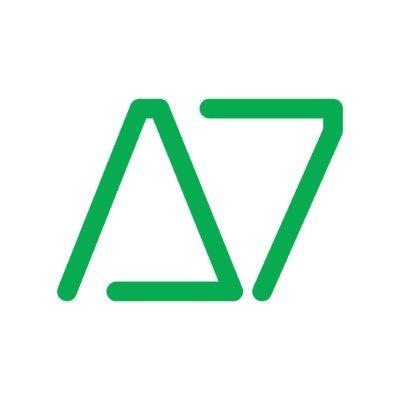Invest in rental homes
Invest in trading cards
Moderate Risk
3/5
Investing on Ark7 carries risks such as market volatility, property value fluctuations, economic impacts, and potential liquidity challenges in the secondary market.
High Risk
4/5
Investing in trading cards on Alt involves market risk, liquidity risk, uncertainties in authentication and grading, regulatory changes, operational risks including cybersecurity threats, and risks related to the physical storage and insurance of assets.
Moderate Liquidity
2/5
Ark7 allows investors to sell their shares on a secondary market after a minimum holding period of one year, providing liquidity.
Moderate Liquidity
2/5
Alt enhances the liquidity of trading cards through the Alt Exchange and Alt Liquid Auctions, enabling quick and efficient buying and selling of authenticated, graded cards stored in the Alt Vault. Bi-weekly auctions provide regular opportunities for transactions, while Alt Lending allows users to access cash without selling their assets.
Receive new reviews from Fintorial
Low Return
3.22-6.96 %
Ark7 offers annualized cash return rates between 3.22% to 6.96%, or $0.1 to $0.58 per share, based on past performance or estimates for newer properties.
Not Predictable Return
N/P
Returns on trading card investments via Alt are influenced by the rarity, condition, and market demand for specific cards, making them highly variable. While some cards may see substantial appreciation, others might not perform as well, reflecting the speculative nature of alternative investments. Investors should adopt a long-term view and be prepared for fluctuations, as significant returns are possible but not guaranteed.
Long-term Investment
1+ year
Ark7 targets long-term investments in real estate for appreciation but allows selling shares after a minimum holding period for flexibility.
Long-term Investment
5+ years
The investment time horizon for trading cards on Alt is typically long-term.
Who can invest
United States
Ark7 is open to U.S. citizens or residents over 18 with an SSN or ITIN and a U.S. bank account. Select offerings are for accredited investors only.
Who can invest
International
To invest on Alt, individuals must be at least 18 years old, provide a current address, a Social Security number for U.S. residents, and a valid government-issued photo ID for both U.S. and international users. Alt is inclusive of international investors, accepting payments from 76 additional countries.
Moderate Volatility
3/5
Assets on Ark7 exhibit volatility influenced by real estate market shifts, economic conditions, and demand fluctuations. While real estate is generally stable, values and rental incomes can vary. Additionally, liquidity and market demand on the secondary market may affect share prices and selling ease.
Moderate Volatility
3/5
Trading cards on Alt are subject to volatility due to factors like changing market demand, the rarity and condition of the cards, and broader economic trends. This niche market's limited buyer and seller base can lead to significant price fluctuations, making the value of these assets potentially change rapidly and unpredictably.
Regulation and audits
SEC Regulated
Ark7 complies with SEC regulations, making necessary filings for transparency and undergoes regular independent audits for financial accuracy and operational compliance.
Regulation and audits
Not Regulated
Alt adheres to regulatory requirements by verifying the identity of all users, a step that aligns with legal standards for financial technology platforms. Although specific audit details aren't provided, such platforms typically undergo periodic audits to ensure compliance with financial regulations and cybersecurity standards.
Insurance
Yes
Ark7 secures comprehensive insurance for all properties, covering natural disasters, property damage, and liability, to protect investors' returns and mitigate financial risks.
Insurance
Yes
Alt offers insurance for trading cards stored in its vault, safeguarding investors' assets against theft, damage, and loss.
Payouts
Dividends
Ark7 offers returns through monthly cash distributions from rental income, after deducting operating expenses, and long-term property appreciation. Distributions are prorated based on shares owned and deposited monthly. Property appreciation potential comes from home value gains, with shares sellable on the secondary market after a holding period. Monthly distribution amounts may vary due to operational factors.
Payouts
No Recurring Payouts
Trading cards on Alt do not offer dividends. Instead, the potential financial benefit for investors lies in the appreciation of the asset's value over time, with returns realized through capital gains upon sale.
Withdrawals
Investors can get their money back by selling their shares on Ark7's secondary market after a minimum one-year holding period or through property appreciation when they sell their shares.
Withdrawals
To get their money back, investors on Alt can sell their trading cards through the Alt Exchange or Alt Liquid Auctions. Once a sale is processed, the funds are credited to the seller's account, from which they can be withdrawn. The time and price at which cards sell may vary based on market demand and card rarity.
Extra Fees
Yes
Ark7 charges a one-time 3% sourcing fee of the property market cap for acquiring and listing properties, and a monthly asset management fee of 8-15% of rental income for property and tenant management.
Extra Fees
Yes
Alt charges no fees for vaulting services for cards graded by supported companies, while charging $5 for each unsupported graded and ungraded card. Sales transactions on Alt's marketplace incur a tiered selling fee based on the card's final sale price: 10% for sales up to $7,499, 8% for sales between $7,500 and $9,999, and 5% for sales of $10,000 or more.
Taxes
Tax Form
Ark7 issues Schedule K-1 forms for properties taxed as partnerships and plans to issue 1099-DIV for properties treated as REITs, aiming to transition as they open to the public. Tax documents are sent before March 15th, considering depreciation and expenses to potentially reduce taxable income for investors.
Taxes
Tax Form
Alt supports tax reporting for investors by issuing 1099-K forms to those who meet specific criteria: being a verified Alt customer, filing taxes in the US, and receiving payments over $600 in a calendar year. This ensures compliance with tax obligations by reporting to the IRS and relevant state tax authorities.

